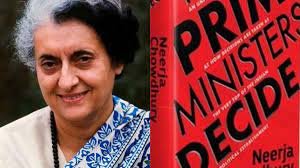Factors Influence the Prime Minister's Decision-making Process

The Prime Minister's decision-making process is influenced by a variety of factors, including:
Political Considerations: The Prime Minister's decisions are often influenced by political considerations, including party priorities, electoral calculations, and public opinion. They may weigh the potential political implications of their decisions, particularly in terms of maintaining party unity, garnering public support, and managing opposition from political rivals.
Policy Goals and Objectives: The Prime Minister's decision-making process is guided by the government's policy goals and objectives. They may prioritize certain policy areas based on the government's agenda, campaign promises, and commitments to address pressing issues such as economic growth, social welfare, national security, and environmental sustainability.
Expert Advice and Information: The Prime Minister relies on expert advice and information from various sources, including government officials, advisors, experts, and stakeholders. They may seek input from cabinet ministers, senior civil servants, economists, scientists, and other experts to inform their decision-making on complex policy issues.
International Relations and Diplomacy: The Prime Minister's decisions are influenced by considerations of international relations and diplomacy. They may take into account the country's foreign policy objectives, alliances, and obligations, as well as geopolitical dynamics, global trends, and the interests of other countries and international organizations.
Economic Factors: Economic considerations, such as fiscal constraints, budgetary priorities, and economic stability, can influence the Prime Minister's decision-making process. They may weigh the potential economic impacts of their decisions, including effects on employment, inflation, trade, investment, and public finances.
Legal and Constitutional Constraints: The Prime Minister operates within legal and constitutional constraints that shape their decision-making process. They must adhere to the rule of law, respect constitutional principles, and comply with legal requirements, including parliamentary procedures, judicial rulings, and international obligations.
Public Opinion and Media Influence: The Prime Minister is sensitive to public opinion and media influence, which can affect their decision-making process. They may consider public sentiment, polling data, and media coverage when making decisions, seeking to maintain public support and credibility.
Personal Values and Leadership Style: The Prime Minister's personal values, beliefs, and leadership style can also influence their decision-making process. They may be guided by principles of ethics, morality, and social justice, as well as their own leadership instincts, temperament, and experience.
Overall, the Prime Minister's decision-making process is complex and multifaceted, shaped by a combination of political, policy, economic, legal, international, and personal factors. They must balance competing interests and considerations to make decisions that they believe are in the best interests of the country and its citizens.
Thank you,